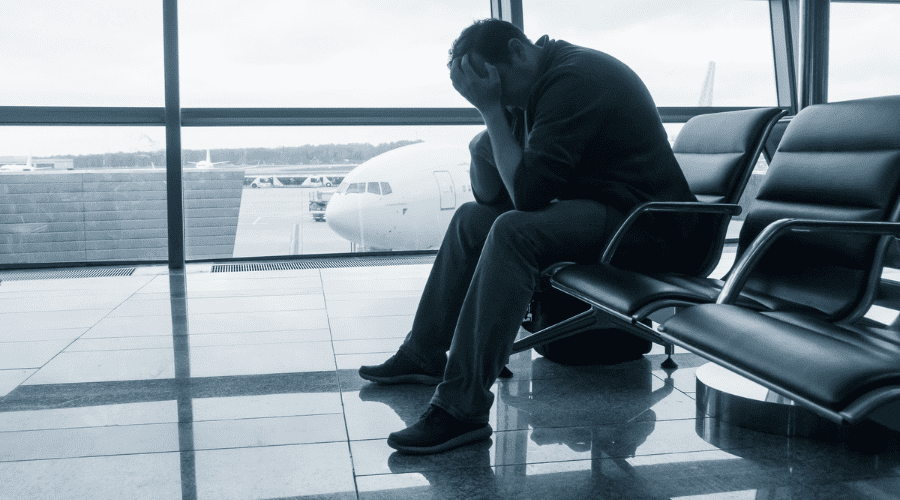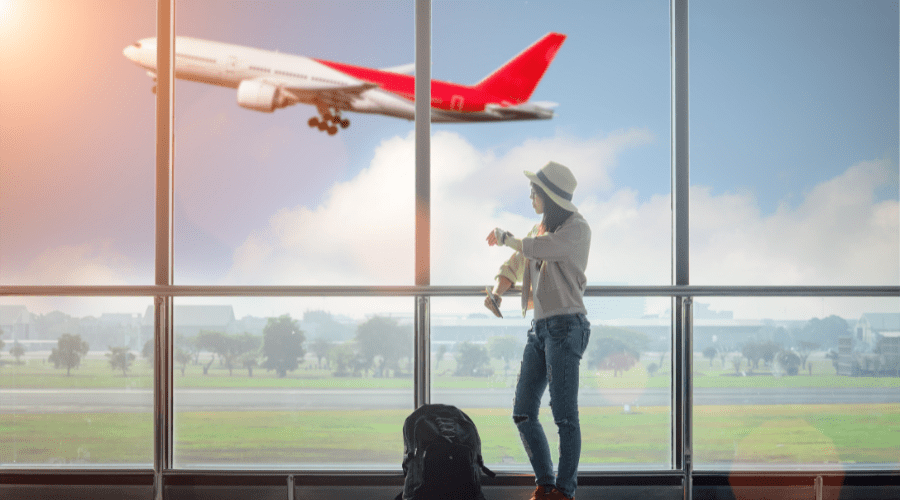What happens when your flight gets delayed in Ireland? How do you use your rights as an air passenger that entitle you to compensation for flight delays? We’ll guide you through the ins and outs of claiming compensation, discuss the different types of compensation available, reveal how much you can potentially receive, and even share some tips on avoiding those pesky delays altogether. So, let’s navigate our way towards getting your well-deserved flight delay compensation in the Ireland.
What are the rules for flight delays in Ireland?
Flight delays can be frustrating, especially when you’re all set to explore the stunning landscapes of Ireland. Fortunately, the European Union Regulation 261/2004 provides certain rights and rules that protect air passengers in cases of flight delays.
In Ireland, these rules apply to flights departing from any EU airport or arriving at an EU airport on an EU carrier. The regulation states that if your flight is delayed for more than three hours, you may be eligible for compensation. However, it’s important to note that this compensation only applies to flights that are within the control of the airline – such as technical issues or crew shortages – and not due to extraordinary circumstances like severe weather conditions or air traffic control strikes.
To qualify for compensation, your flight must have departed from an EU member state or arrived there on an EU-based carrier within the last six years. It’s also essential that you’ve checked-in on time and haven’t voluntarily given up your seat due to overbooking.
If you meet these requirements and experience a qualifying delay, make sure to gather all relevant documentation such as boarding passes and receipts for expenses incurred during the delay. This evidence will help support your claim when seeking compensation from the airline.
Remember, each case is unique and subject to individual circumstances. While there are established rules for flight delays in Ireland under EU regulations, it’s advisable to consult with professionals specializing in aviation law if you encounter any complexities along the way.
How to claim compensation for a delayed flight
According to Schengen.News, many travelers are unaware of their entitlements, such as the right to free assistance if a flight is delayed. For instance, during the waiting period, passengers are eligible for complimentary food and drinks.
When you experience a delayed flight, it can be frustrating and inconvenient. However, the good news is that in Ireland, you may be entitled to compensation for your inconvenience. Here’s what you need to know about claiming compensation for a delayed flight.
It’s important to understand the rules surrounding flight delays in Ireland. According to EU Regulation 261/2004, passengers are eligible for compensation if their flight is delayed by more than three hours and the delay was within the airline’s control. This means that if your delay was due to factors such as mechanical issues or crew shortages, you may have a valid claim.
To claim compensation, start by contacting the airline directly. Provide them with all relevant details of your flight including your booking reference number and any supporting documentation such as receipts or boarding passes. It’s also recommended to keep copies of all communication with the airline for future reference.
There are different types of compensation that you may be entitled to. There is monetary compensation which varies depending on the length of the delay and distance of your journey. Additionally, airlines are also required to provide assistance during delays such as meals or accommodations if necessary.
The amount of compensation you can receive depends on various factors including the length of your delay and distance traveled. For example, for flights up to 1,500 kilometers with a delay between three and four hours, you could receive €250 in compensation.

What are the different types of compensation?
The specific type of compensation you can claim depends on the circumstances surrounding your delay.
One common form of compensation is monetary reimbursement for any additional expenses incurred as a result of the delay. This could include costs such as meals, accommodation, transportation, and phone calls. It’s important to keep all receipts and documentation related to these expenses in order to make a successful claim.
In addition to monetary reimbursement, some airlines may offer vouchers or travel credits as compensation for a delayed flight. These can be used towards future flights with the same airline and are often valid for a specified period of time.
Another type of compensation that passengers may be eligible for is denied boarding compensation. If you were involuntarily denied boarding due to an overbooked flight or other reasons within the airline’s control, you may be entitled to financial compensation in addition to alternative travel arrangements.
It’s worth noting that each airline has its own policies regarding compensations and their terms and conditions should be reviewed carefully before making a claim.
How much compensation can you get?
In Ireland, the amount of compensation you can receive for a delayed flight is determined by the length of your journey and the duration of the delay.
For flights within the European Union (EU) that are less than 1,500 kilometers in distance, you may be entitled to €250 in compensation if your flight is delayed for more than three hours. If your flight is between 1,500 and 3,500 kilometers and delayed for more than three hours, you could receive €400 in compensation. And for flights longer than 3,500 kilometers that experience a delay of over four hours, you may be eligible for €600.
It’s important to note that these amounts are set by EU regulations and apply to all member states including Ireland. However, it’s always recommended to check with your airline or use an online calculator to determine the exact amount you could be entitled to based on your specific circumstances.
Additionally, it’s worth mentioning that there are certain instances where airlines might not have to pay compensation due to “extraordinary circumstances” such as severe weather conditions or air traffic control strikes. However, these situations are evaluated on a case-by-case basis.
Claiming compensation for a delayed flight requires submitting a formal complaint directly to the airline involved within specified time limits which can range from two years up until six years depending on national laws. It’s advisable to gather all relevant documentation including boarding passes and any communication with the airline regarding the delay as evidence when making your claim.

Tips for Avoiding Flight Delays
1) Plan your travel wisely: One of the best ways to avoid flight delays is to plan your trip during off-peak times, when airports are less crowded and flights are more likely to be on schedule. Consider flying early in the morning or late at night for a smoother journey.
2) Check the weather forecast: Weather conditions can play a significant role in flight delays. Stay updated with the latest weather forecasts for both your departure and arrival locations, as well as any layover destinations. If severe weather is predicted, it might be wise to reschedule your trip if possible.
3) Choose reliable airlines: Do some research before booking your flight and opt for reputable airlines known for their punctuality and reliability records. While budget carriers may offer attractive fares, they tend to have higher rates of delay compared to established carriers.
4) Allow ample time between connecting flights: When booking flights with layovers, ensure you have enough time between connections so that even if one leg experiences a delay, you won’t miss your next flight.
5) Pack smartly: Be mindful of baggage restrictions and pack efficiently within those limits. Overweight or oversized luggage may cause delays during security checks or while boarding the aircraft.
6) Keep an eye on airline notifications: Sign up for email alerts from your airline regarding any changes in flight schedules or potential delays so that you can stay informed ahead of time.
7) Arrive early at the airport: Give yourself plenty of time before departure by arriving at least two hours prior (for domestic flights) or three hours (for international flights). This allows ample buffer time should there be unexpected obstacles like long queues at check-in counters or security checkpoints.
8) Take advantage of mobile apps: Many airlines offer mobile applications that provide real-time updates on flight status and gate changes right at your fingertips – take advantage of these tools!
Conclusion
If you have experienced a flight delay in Ireland, there are rules and regulations in place to protect your rights as a passenger. By knowing these rules and taking the necessary steps to claim compensation, you can ensure that you receive what you are entitled to.
Understanding your rights as an air passenger and being proactive in seeking compensation can help make the experience of a flight delay less frustrating. Remember that patience is key during these situations but also remember that you deserve fair treatment under Irish law.



































